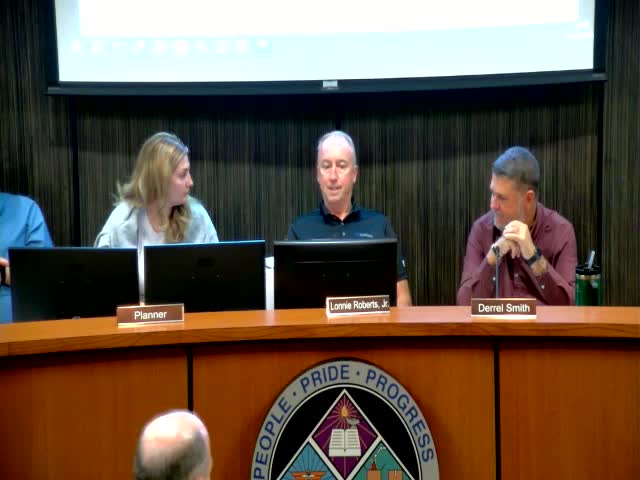Attorney warns Jonesboro commissioners about tightened Freedom of Information Act limits on private communications
Get AI-powered insights, summaries, and transcripts
Subscribe
Summary
An attorney told the Jonesboro Metropolitan Area Planning Commission on Oct. 14 that recent changes to the Freedom of Information Act bar commissioners from privately discussing matters that are reasonably likely to come before the body, and create a new private right to seek judicial invalidation of votes.
John Baker, an attorney with the Mitchell Williams law firm, told the Jonesboro Metropolitan Area Planning Commission on Oct. 14 that recent changes to the Freedom of Information Act enacted in August significantly restrict how members of governing bodies may communicate about prospective agenda matters.
Baker said the law now prohibits members of a governing body from communicating with one another "about any matter that is likely to come before your body in the future" outside a convened meeting. He said the statute includes new enforcement tools that allow an affected party to sue to invalidate a decision if members improperly discussed a matter before voting.
"If you violate this rule, and somebody believes you have, they can now actually file a law suit and just simply ask the judge to invalidate whatever you voted on," Baker said. He described the change as a "sea change" from prior practice and urged commissioners and staff to consult planning staff and the city attorney, and to treat previously common pre‑meeting conversations and social communications with greater caution.
Baker noted a clarification in the law that social encounters — for example, members who happen to attend the same public event — are not automatically a meeting requiring notice. He said the law still permits members to request or receive background information from staff or to make ordinary scheduling inquiries, and he recommended that commissioners use written (email) requests when seeking background information from one another so the exchange is limited to facts rather than deliberations.
During questions, commissioners asked whether the commission's customary pre‑meeting (held the day before the Tuesday meeting) would create a violation. Baker said a pre‑meeting that is noticed and open to the public and media would not be a violation, but he emphasized that notice procedures must be accurate because inadequate notice can be another basis to challenge a vote. He encouraged commissioners to review the statutory changes with city staff or legal counsel to avoid inadvertent invalidation of actions.
Baker identified the Arkansas Game and Fish Commission — which previously had to post notices when commissioners attended the same private event — as an example of an entity affected by related vagaries in the prior law. He said the recent amendment eliminates the need to notice purely social gatherings of commissioners and clarified several prior ambiguities.
The presentation was introductory; Baker distributed a six‑page summary to commissioners and offered to take follow‑up questions.
